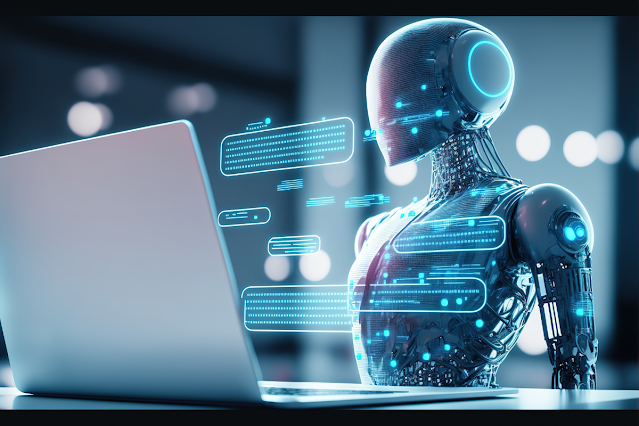The Rise of Agentic AI: How It’s Pushing Generative AI to the Next Level
Generative AI has already transformed how we create content, automate processes, and enhance user experiences. But now, a more advanced evolution is emerging—Agentic AI. This next-gen technology brings autonomy, adaptability, and goal-oriented behavior to the capabilities of traditional generative models. It’s changing the game in everything from business automation to software development. For professionals and students looking to ride this wave of innovation, enrolling in a Generative AI course in San Francisco is one of the best ways to get future-ready.
In this post, we’ll explore what Agentic AI is, how it’s evolving from generative AI, and the ways it’s pushing the boundaries of automation, intelligence, and productivity.
What Is Agentic AI?
Agentic AI refers to intelligent systems that not only generate content or outputs but can independently take actions, make decisions, and adapt to changing environments in pursuit of specific goals. These systems are designed as AI agents—capable of reasoning, planning, learning, and interacting autonomously.
Unlike traditional generative AI tools like ChatGPT or Midjourney—which respond to input prompts—agentic AI models can:
-
Set objectives.
-
Decide what actions to take next.
-
Use tools or APIs to perform tasks.
-
Learn from feedback loops and outcomes.
This makes them ideal for real-world use cases where tasks require multi-step reasoning, decision-making, and execution.
How Agentic AI Differs from Traditional Generative AI
Generative AI is powerful but often passive—it generates text, images, or code based on user prompts. Agentic AI takes it a step further by giving these models autonomy and a sense of purpose.
| Feature | Generative AI | Agentic AI |
|---|---|---|
| Input Dependency | Needs human prompts | Self-initiates actions |
| Goal-Oriented | No intrinsic goal-setting | Designed to achieve goals |
| Learning Ability | Limited context or learning | Learns from real-world feedback |
| Tool Use | Generally doesn't use tools | Can browse, code, and execute actions |
With Agentic AI, we’re entering a phase where AI is no longer just an assistant—it’s becoming an autonomous problem-solver.
Key Technologies Powering Agentic AI
Agentic systems are built on the foundation of large language models (LLMs) but incorporate additional elements such as:
-
Memory & Context Awareness
Agents can retain memory across sessions, enabling long-term planning and adaptation. -
Tool Use via Plugins or APIs
Agents can access calculators, web browsers, databases, or code execution environments. -
Reinforcement Learning & Feedback Loops
They improve over time based on success/failure of actions. -
Multi-Agent Collaboration
Agentic systems can work together—delegating tasks and collaborating to solve complex problems.
Real-World Applications of Agentic AI
The rise of agentic AI is already transforming industries. Here are some examples where autonomous agents are making a major impact:
1. Automated Customer Support Agents
Agents don’t just respond with pre-programmed scripts—they can:
-
Handle complex queries.
-
Escalate issues.
-
Retrieve data from various systems autonomously.
2. AI Software Developers
With tools like Auto-GPT, AgentGPT, and Devika, agentic systems can:
-
Understand a coding task.
-
Write, debug, and test code.
-
Deploy software or create documentation.
This opens the door for AI engineers who act as collaborators, not just assistants.
3. Business Process Automation
AI agents are being used to:
-
Run multi-step marketing campaigns.
-
Automate sales follow-ups.
-
Schedule meetings and analyze business performance.
Startups are even building CEO agents that make executive decisions on behalf of small businesses.
4. Research & Knowledge Discovery
Agentic AI can:
-
Browse the internet.
-
Aggregate insights.
-
Summarize key takeaways across documents.
Instead of searching manually, businesses can deploy research agents to save hours of human labor.
Major Players and Open-Source Projects
As Agentic AI gains momentum, several tools and frameworks are leading the way:
-
Auto-GPT: One of the first agentic frameworks that chains multiple prompts and decisions.
-
LangChain: A Python framework for building applications with LLMs and tool use.
-
MetaGPT: Multi-agent programming system that mimics a software development team.
-
OpenAI's Function Calling + Plugins: Enabling ChatGPT to interact with APIs and tools autonomously.
These technologies are empowering developers to create truly autonomous systems with minimal code.
Why Businesses Should Pay Attention
For businesses, Agentic AI isn’t just a buzzword—it’s a productivity multiplier. By deploying autonomous agents:
-
Teams can reduce manual labor.
-
Processes become faster and error-free.
-
Time is saved on repetitive decision-making.
Forward-thinking businesses are already experimenting with agents to run product launches, generate content, and optimize workflows. Those who ignore it may find themselves outpaced by smarter, AI-powered competitors.
Preparing for the Agentic AI Era: The Role of Education
With this rapid shift, the demand for professionals skilled in building and deploying agentic AI systems is rising sharply. A Generative AI training in San Francisco equips learners with the knowledge to:
-
Understand the architecture of agentic AI systems.
-
Work with frameworks like LangChain, Auto-GPT, and OpenAI APIs.
-
Design agents that can operate across domains like marketing, customer service, or software development.
Whether you're a software engineer, product manager, or AI enthusiast, hands-on training helps bridge the gap between theory and practical implementation—making you industry-ready in 2025 and beyond.
Conclusion
The rise of Agentic AI marks a fundamental shift in how we view and use artificial intelligence. From passive content creators to goal-driven, autonomous agents, AI is quickly becoming capable of performing tasks once reserved for skilled professionals. Whether it's writing code, conducting research, managing marketing campaigns, or making decisions—agentic AI is reshaping what’s possible.




Comments
Post a Comment